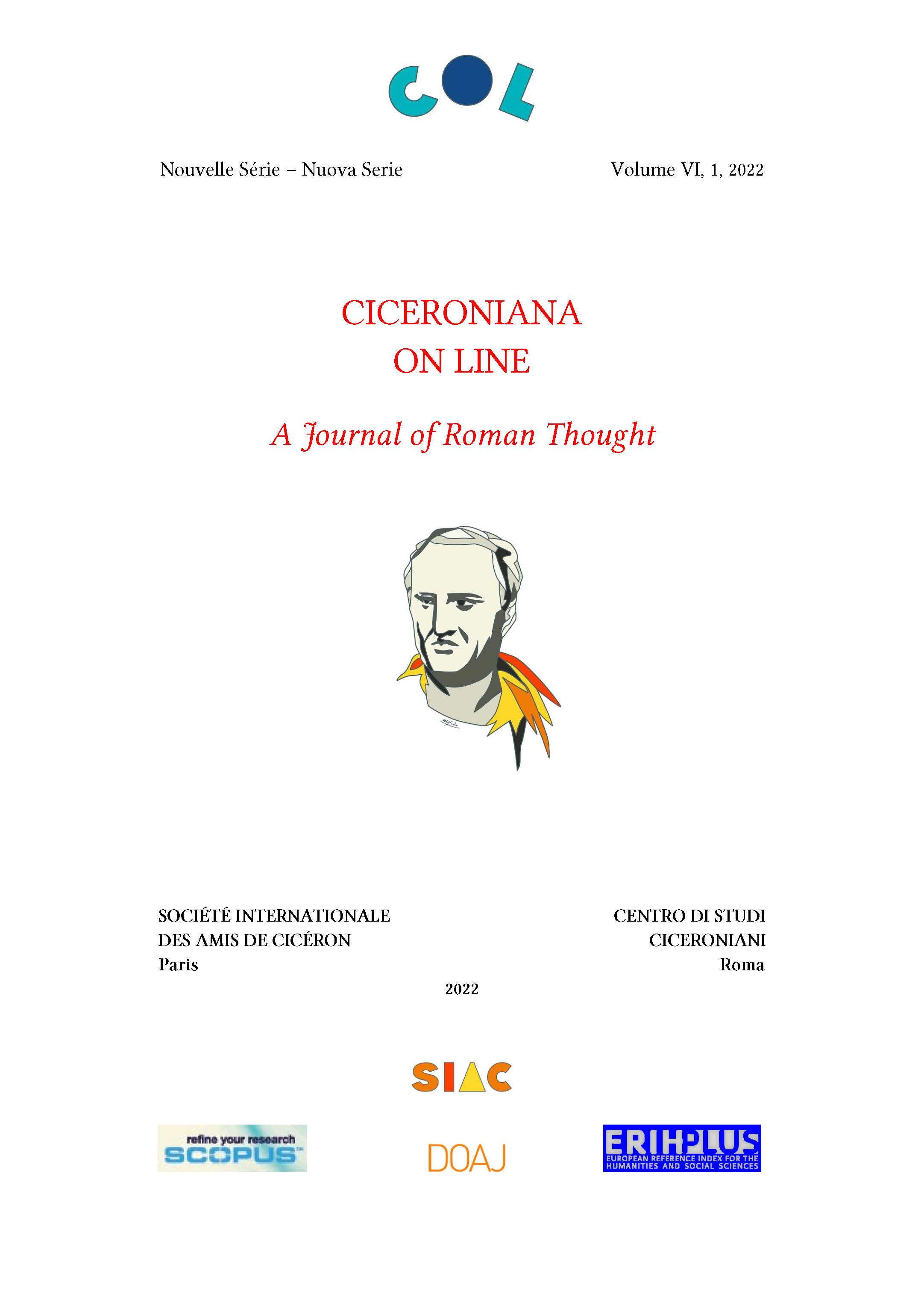Cicero and his Clamorous Silences: was he Fair Enough with the Epicure-ans and their Ethical and Political Views?
DOI:
https://doi.org/10.13135/2532-5353/6870Abstract
If our knowledge of Epicurean philosophy depended exclusively upon the information conveyed by their adversaries, we would be practically unaware of the political component of the Epicurean study of nature (φυσιολογία), and of the political considerations that grounded the Epicurean way of life. This paper shows how Cicero omits some elements of Epicureanism that are crucial to understanding how political reflection was integrated into Epicurean philosophy. We argue that Cicero consciously omits important details of Epicurean arguments regarding ethics and politics and includes some silences that can be described as «clamorous». By bypassing the crucial interconnection between political theory and the Epicurean study of nature, Cicero includes passing reference to Epicurean contractualism and he does not set out the Epicurean theoretical framework in which it was originally inscribed.
Downloads
Downloads
Published
How to Cite
Issue
Section
License
Authors who publish with this journal agree to the following terms:
- Authors retain copyright and grant the journal right of first publication with the work simultaneously licensed under a Creative Commons Attribution License that allows others to share the work with an acknowledgement of the work's authorship and initial publication in this journal.
- Authors are able to enter into separate, additional contractual arrangements for the non-exclusive distribution of the journal's published version of the work (e.g., post it to an institutional repository or publish it in a book), with an acknowledgement of its initial publication in this journal.


 Ciceroniana On Line is recognised by ANVUR (the National Agency for the Evaluation of the University System and Research) as a CLASS A journal for the Sciences of Antiquity, Philology, Literature and History of Art (
Ciceroniana On Line is recognised by ANVUR (the National Agency for the Evaluation of the University System and Research) as a CLASS A journal for the Sciences of Antiquity, Philology, Literature and History of Art ( The journal is included in DOAJ. The DOAJ listing of the journals is available at
The journal is included in DOAJ. The DOAJ listing of the journals is available at  The journal is indexed in
The journal is indexed in  The journal has been included in ERIH PLUS. The ERIH PLUS listing of the journals is available at
The journal has been included in ERIH PLUS. The ERIH PLUS listing of the journals is available at 

